I am building a sensor using an Arduino connected to a laptop; I noticed that the readout is much more noisy when I use a non-grounded laptop (either running on battery or connected to a power socket without ground prong) compared to when I use my grounded power supply. Some kind of high-frequency noise appears the second I disconnect the grounded power supply.
I assume that it is a floating ground problem: all the components are connected to the Earth (including the USB cable ground) - would there be some kind of floating ground in the laptop?
Only one of my laptops has a ground prong, and I would like to use the others for the same purpose, so I am wondering if there is a "canonical way" to ground a laptop to the Earth. I thought properly grounding the USB cable would be enough, but apparently not...
Should I create a ground pin for my arudino laptop?
